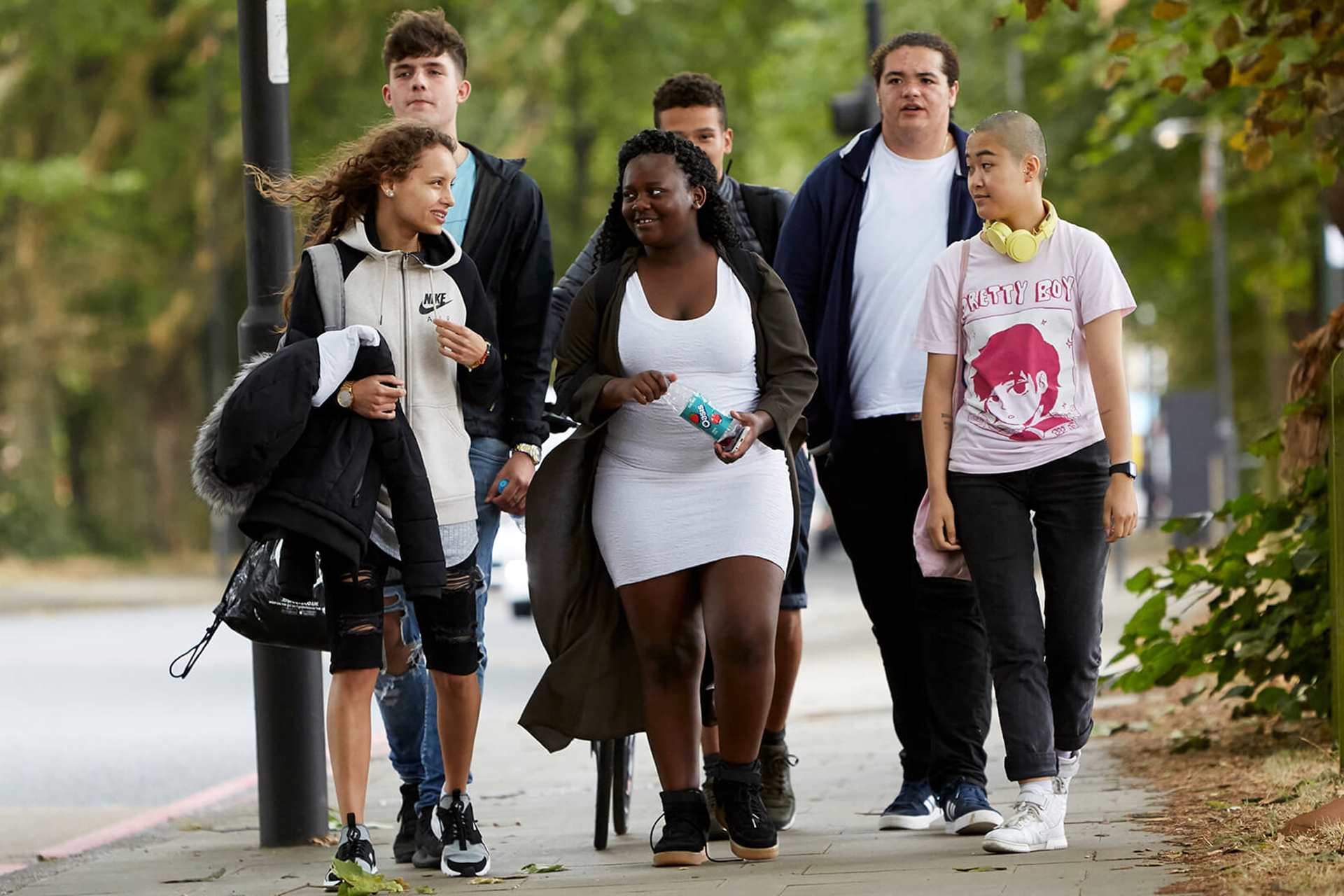Topics mentioned: self-esteem, self-care, friends, family
About: Our bloggers share how learning to say no, set boundaries and be more assertive helps them look after their wellbeing when struggling with people pleasing.
Sometimes it’s because I fear saying no will ruin a relationship, especially when the person means a lot to me, or that it will make me look lazy.
You don’t have to feel guilty for saying no
Rachel, 25
People pleasing is tricky, because it doesn’t always feel like a bad thing to do. When someone asks me to do something, sometimes I say yes because I underestimate the size of the task.
But sometimes it’s because I fear saying no will ruin a relationship, especially when the person means a lot to me, or that it will make me look lazy. Sometimes it is just to fill the awkward silence. This is why I often find myself with too much on my plate.
Here are some ways I manage this:
- Ask about the task so I can work out how it will fit into my schedule.
- If I have FOMO, I check if the opportunity will come up again or if I can split the work into something more manageable for me.
- I say yes to part of the task but make it clear exactly what I will be able to take on and when.
- I say no but suggest another way I could offer support.
As hard as it is, recognising and accepting your own limits is a way of taking care of yourself and knowing your worth.
Sometimes I just have to bite my tongue, say no, and deal with the guilt. But we don’t have to feel guilty for saying no. It is hard to set boundaries, but I need to be in a good place to be able to help others. Committing to too much and letting people down will make me feel worse.
You shouldn’t feel pressured to help others if you know it’s something you can’t do right now. Sometimes other people don’t know what else we’ve got going on and can expect too much.
People-pleasing often feels like a way to feel worthy, but you won’t gain self-worth from people who don’t respect your efforts. As hard as it is, recognising and accepting your own limits is a way of taking care of yourself and knowing your worth.
Boundaries are especially important for people-pleasers because we often don’t know when someone has overstepped and is asking too much of us.
The importance of boundaries and sticking to them
Sophie, 17
One thing I’ve found helpful when putting myself first as a people-pleaser is setting boundaries, and people-pleasers often have few to no boundaries at all. Having boundaries is extremely important and everyone should have them. It helps us understand ourselves, become more assertive, protect our mental wellbeing and build healthy relationships.
Boundaries are especially important for people-pleasers because we often don’t know when someone has overstepped and is asking too much of us. Examples of boundaries include taking alone time when you need it, expressing your own needs or setting social boundaries, such as: “I can spend time with my friends and do things I enjoy without my partner being included.”
The hardest part of setting boundaries is sticking to them, but here are some things that have helped me:
Saying no is really hard. Especially if you’re just saying yes to please others, which can become exhausting. I found that starting small and saying no to little things helped.
This could be saying no if someone offers you something, like a straw at a restaurant or if a friend offers you some of their crisps (unless you really want some). It might seem small, but getting used to saying no helped me feel more confident when saying no to the bigger things.
It helps to have a think about how I will reply if I need to say no to someone. I feel much more able to get across what I want to say when someone asks something of me. This can also help slow down how fast your mind may be going in the moment and have a calmer conversation.
You might feel like you need to make excuses when saying no, but you don’t owe anyone an explanation. This is where thinking about your reply can really help and stop you coming up with random excuses that can be pushed aside. You can just say no, and you don’t have to explain yourself. The good people in your life will respect this boundary.
What to do if someone isn’t letting you speak
Mary, 22
Sometimes when you’re having a disagreement, part of the problem can be that you’re not given the chance to have your say. I’ve been in positions where other people can dominate the conversation or shut down my views before I even get the opportunity to express them. This can lead to the feeling of needing to agree just to move on.
If you feel this way, allow the other person to finish but explain that they should give you the same respect you gave them and listen to you. Not only does this allow you time to think and properly structure your answer, but also to assert your wish to be listened to and heard. It gives the other person your boundary – I will listen to you, if you listen properly to me.
Allow the other person to finish but explain that they should give you the same respect you gave them and listen to you.
More information and advice
We have tips and advice to help you find the support you need. Take a look at our guides.
Where to get help
However you're feeling, there are people who can help you if you are struggling. Here are some services that can support you.
-
CALM (Campaign Against Living Miserably)
Provides support to anyone aged 16+ who is feeling down and needs to talk or find information.
Free webchat service available.
Read information about the helpline and how it works.
- Opening times:
- 5pm - midnight, 365 days a year
-
Childline
If you’re under 19 you can confidentially call, chat online or email about any problem big or small.
Sign up for a free Childline locker (real name or email address not needed) to use their free 1-2-1 counsellor chat and email support service.
Can provide a BSL interpreter if you are deaf or hearing-impaired.
Hosts online message boards where you can share your experiences, have fun and get support from other young people in similar situations.
- Opening times:
- 24/7






